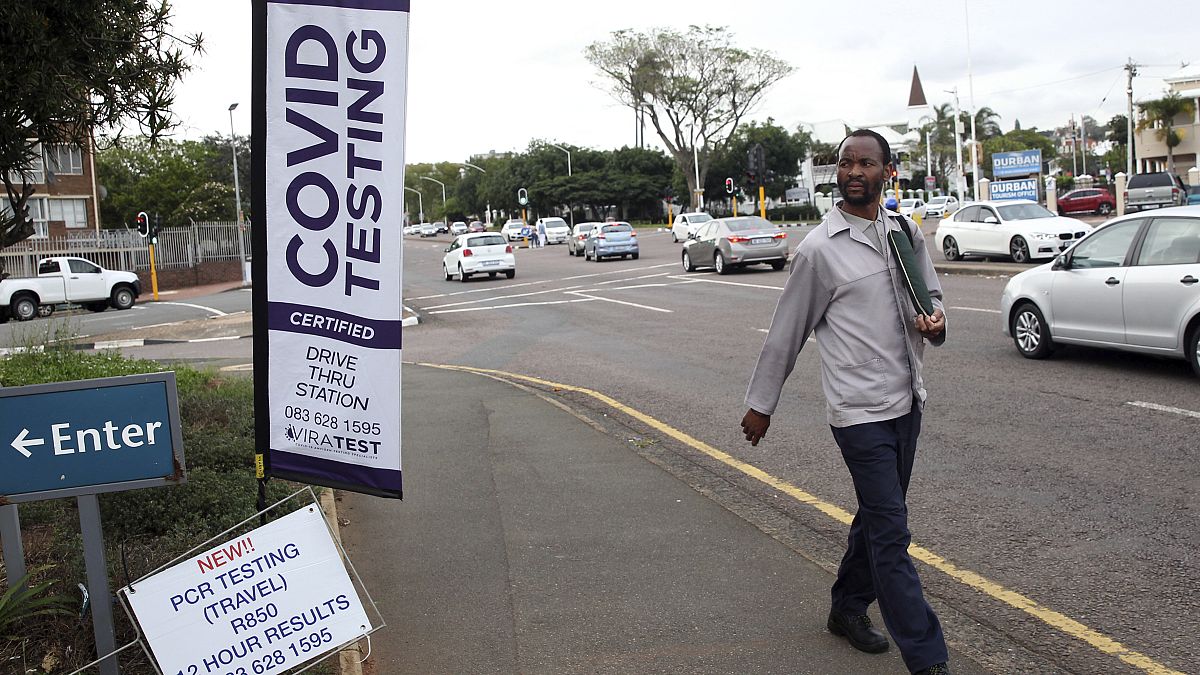The World Health Organization's chief scientist says the new variant is 'highly transmissible' but that the world is better prepared than in 2020.
A new variant of COVID-19 is more transmissible than previous versions of the virus but should not cause a panic, the World Health Organization's chief scientist has said.
As far as WHO is aware, the Omicron variant has not led to any deaths but people should still be aware of the risks
Soumya Swaminathan cited data from South Africa showing the number of cases doubling daily. But she added, people should be "prepared and cautious, (but) not panic".
"We're in a different situation today than we were at the beginning of 2020, we have tools, we know what to do, we know what works," the WHO's Chief Scientist told Reuters.
"This was something we had expected, that new variants would emerge, we've been through rounds of other variants," she added.
"It is something to worry about, we didn't want to see another variant emerge and spread around the world at this stage of the pandemic, certainly not what we wanted, but we're not entirely surprised and I think we're much better prepared to handle it."
The Delta variant still accounted for 99% of infections around the world, Swaminathan said, adding that Omicron would have to become much more transmissible to overtake it and become dominant worldwide.
The new variant has been detected in more than two dozen countries, but much remains unknown about its effects. Some have been identified in Europe, struggling with a surge in Delta cases.
A study by a group of South African scientists — not yet peer-reviewed — has found that there appears to be a higher risk of reinfection with COVID-19 with the Omicron variant.
The WHO had already warned that preliminary evidence showed a higher risk of reinfection with the new variant.
Experts say it is too early to determine whether Omicron is likely to infect people who are vaccinated against COVID-19, and whether it brings a bigger threat of severe illness.
